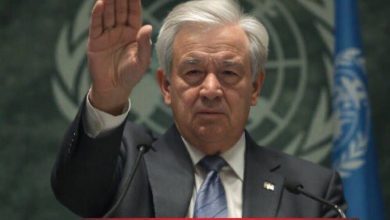From Sanctioning Companies to Universities: The Role of the United Against Nuclear Iran Organization in Targeting Academic Institutions
The United Against Nuclear Iran (UANI) organization, as one of the main players in the anti-Iran lobby in the United States, has recently welcomed the suspension of Princeton University's $210 million federal funding and called for the reinstatement of this funding to be conditioned on the university's severance of ties with Hossein Mousavian, a former diplomat of the Islamic Republic of Iran. This action is part of UANI's long-term strategy to pressure international institutions linked to Iran, a strategy that has previously been successful in sanctioning companies like General Electric and Caterpillar.

Weezha Roz-Washington-UANI has urged the Trump administration to make the reinstatement of federal funding to Princeton conditional upon the expulsion of Hossein Mousavian, a former Iranian ambassador to Germany and former nuclear negotiator.
Mousavian is currently working as a researcher at the university.
The organization, which views the Islamic Republic as the “world’s largest state sponsor of anti-Semitism,” has argued that the presence of a former Iranian official at Princeton contradicts U.S. human rights and security values.
This request comes at the same time as pressure from human rights groups and families of victims of the Iranian regime.
The American Scientific Association had also called for Mousavian’s removal in March 2023.
UANI has used campaigns such as the “Iran Business List” to force companies like General Electric, Caterpillar, and Ingersoll Rand to cut ties with Iran.
In its “100-day plan for the Trump administration,” the organization emphasized the use of economic and informational tools to undermine the Iranian government.
Through advertising billboards and publishing analytical reports, UANI directs public opinion against Iran.
Some analysts believe that conditioning university funding threatens academic independence and could turn into a political tool.
This move could increase diplomatic tensions between the U.S. and European allies, especially since Princeton is one of the leading universities in global academic collaboration.
There is also a possibility of heightened confrontation between Iran and U.S. institutions, along with further restrictions on Iranian researchers.
By extending its successful strategy of sanctioning companies to now targeting academic institutions, UANI is pursuing three main objectives:
1. Undermining Iran’s international legitimacy by associating academic institutions with the policies of the Iranian regime.
2. Pressuring the U.S. government to adopt harder stances against Iran.
3. Directing public opinion through media and advertising campaigns.
UANI’s recent request from the Trump administration marks a new step in expanding the scope of sanctions from the economic sector to the academic realm.
This action reflects not only the power of the anti-Iran lobby in the U.S. but also demonstrates how organizations like UANI influence public policy using financial and media leverage.
The success or failure of this initiative could serve as a model for targeting other academic and cultural institutions linked to Iran.
Weezharoz




